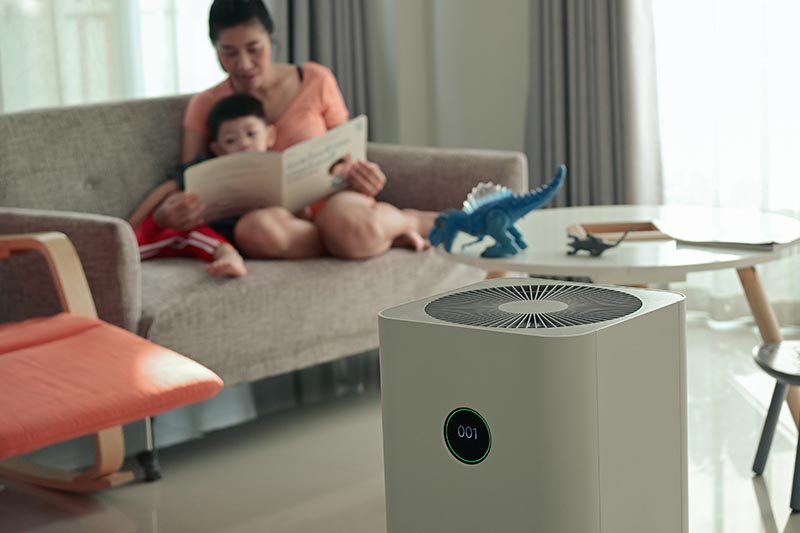During the extreme temperatures throughout the year, you and your family likely spend most of your free time indoors relaxing. Did you know indoor air can be up to five times worse than outside air? This is a chilling fact, and it can make you worry about the air quality inside your home and whether your HVAC system is actively working to improve it.
Understanding Air Quality
While air quality can be described in many different ways, we will briefly describe good indoor air quality. Good quality air is considered to be air without any harmful concentrations of contaminants and doesn’t cause dissatisfaction for over 80% of the people in the area. These unhealthy contaminants can include VOCs, secondhand smoke, radon, pesticides, lead, nitrogen dioxide, carbon monoxide, biological pollutants, and indoor particulate matter.
The Role of HVAC Systems
HVAC systems actively work to regulate the temperature in your home. During the winter, they produce heat. In the summer, they produce cold air and remove excess humidity. Each HVAC system has a built-in air filter that traps unwanted airborne pollutants. These will filter out unhealthy contaminants that otherwise linger in your home and require regular maintenance.
Improving Air Quality with HVAC
Regular maintenance is necessary to help clean your heating and cooling systems’ internal components. Furthermore, regular air filter changes dramatically decrease the amount of harmful contaminants present in your indoor air. Knowing when to change your air filter is vital in maintaining indoor air quality and helping your unit run efficiently.
The Health Benefits
Those suffering from a respiratory condition, asthma, or severe allergies are more prone to experience adverse health symptoms with low air quality levels. The National Institute of Environmental Health Sciences has shown that mold exposure in early life can have long-term effects that can worsen the severity of asthma in patients. Enhancing the air quality inside your home can drastically minimize the flare-ups you or another family member experience. Furthermore, you can reduce other symptoms of poor air, like headaches, fatigue, eye irritation, trouble concentrating, and sinus congestion.
New Technologies and Future Trends
Various HVAC technologies have hit the market over the recent decade to enhance residential indoor air quality. These include air cleaners, UV sanitizing lights, highly-rated MERV filters, humidifiers, and dehumidifiers. Each technology works differently and aims to enhance your air’s overall quality. You can even use dedicated IAQ monitors to track air quality levels at home.
Your HVAC system is one of the greatest assets for improving the quality of air inside your home, which will enhance your family’s overall health and well-being. If you need clarification on the state of your indoor air, it’s time to be proactive.
Call Us Today!
If you’re ready to discover the quality of your indoor air, then contact Thornton Heating Service today. Our HVAC technicians will be more than happy to assess your indoor air and suggest how to enhance it in the future.

